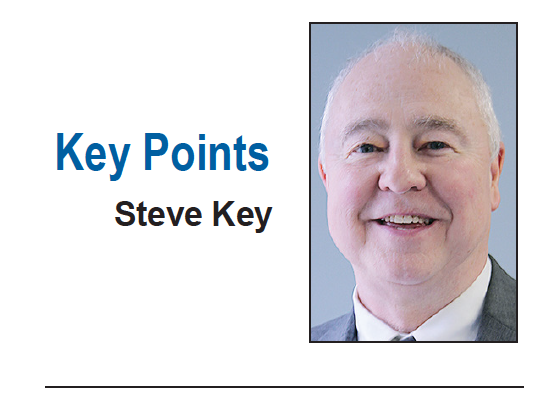Key Points: Steve Key, executive director and general counsel, Hoosier State Press Association
The revelation that the federal Department of Justice secretly obtained the phone records of Washington Post and New York Times reporters during the Trump administration has sparked an outcry among journalists.
Please note that this isn’t a new development and it’s not just a federal issue.
It happened years ago in Indiana and current Indiana Supreme Court rules would allow for it to occur again without the newspaper or broadcast station even knowing about it.
The past state occurrence was in Delaware County where a deputy prosecutor convinced a judge to grant a subpoena of The Star Press (Muncie) phone records in an attempt to determine a reporter’s anonymous source within the city police department who was critical of the handling of a homicide case.
The search was successful. The officer was fired. His merit board hearing, which was public, was where the newspaper learned that its phone records had been used to uncover the officer’s identity.
Steve Johnson, who was the executive director of the Indiana Prosecuting Attorneys Council, expressed his dismay that the action had occurred but didn’t feel the General Assembly needed to act.
So today, Rule 5(A)5 of the Indiana Supreme Court’s Rules of Access to Court Records keeps from public view “(e)ntire cases that exclusively pertain to investigative requests and process unrelated to a pending criminal proceeding, including but not limited to search warrants, subpoenas ad testificandum, subpoenas duces tecum, and other investigative requests.”
Like searches of journalists’ phone records to discover who the leak is in the police department.
While it’s important to stop criminal behavior, the use of secret subpoenas to obtain journalists’ records will have a chilling effect both on journalists and whistleblowers digging into the wrongdoing of government officials.
This wasn’t an unintentional decision. The Supreme Court purposefully deleted from what became Rule 5(A) language that would have provided a threshold for when the case would be public – “until an order to permit public access is entered by a trial court having jurisdiction over a criminal proceeding resulting from the investigatory case or, in the event no criminal proceeding results, by the court that presided over the investigatory case.”
The Indiana Supreme Court declined on principle to provide the rationale for its action to a subcommittee of its Records Access & Management Committee that was examining Rule 5(A)5 for potential changes or clarification.
National media stories say the Department of Justice secretly obtained Washington Post journalists’ phone records in response to reporting done in the early months of the Trump administration on Russia’s role in the 2016 election. Three Post reporters were notified by letter from the DOJ last month of the DOJ’s securing of their phone records over a 3 ½ month period in 2017.
The New York Times learned this month that 2017 phone records of four of its reporters were seized during 2020 as part of a leak investigation.
The DOJ during the Obama administration seized the phone records of 20 separate telephone lines tied to Associated Press reporters and offices in 2012. More than 100 AP reporters worked in the offices whose phone records were obtained.
Subsequent reporting on the issue indicated that then Attorney General Eric Holder had approved multiple requests to obtain the phone records of journalists. How many times he did so has not been made public as far as I know.
While it’s important to stop criminal behavior, the use of secret subpoenas to obtain journalists’ records will have a chilling effect both on journalists and whistleblowers digging into the wrongdoing of government officials.
President Biden has called the DOJ’s tactics of obtaining journalists’ phone records “simply wrong.” His DOJ has publicly said it no longer will secretly obtain such records.
Ironically, the DOJ comments on this policy change made it clear that subpoenaing reporter’s records was something that could be done for years.
“Going forward, consistent with the President’s direction, this Department of Justice – in a change to its longstanding practice – will not seek compulsory legal process in leak investigations to obtain source information from members of the news media doing their jobs,” said DOJ spokesman Anthony Coley in a statement.
As the past has shown though – policy can change from one year to the next.
If there’s a will to truly protect the First Amendment ability of reporters to use anonymous sources to ferret out government wrongdoing, Congress at the federal level and the General Assembly in Indiana will need to act.




